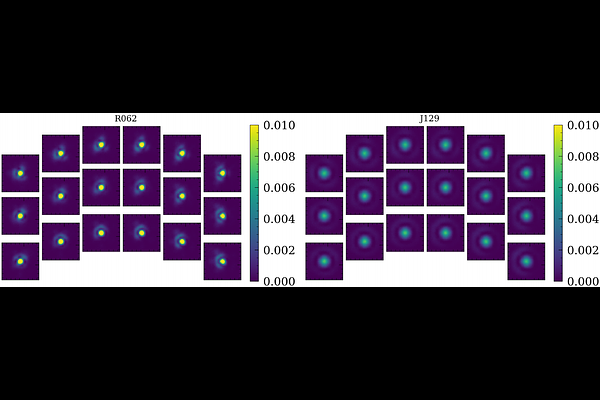Initial Characterization of Stellar Photometry of Roman images from the OpenUniverse Simulations

Initial Characterization of Stellar Photometry of Roman images from the OpenUniverse Simulations
Lauren Aldoroty, Daniel Scolnic, Arun Kannawadi, Rob Knop, Benjamin Rose, Rebekah Hounsell, Michael Troxel
AbstractNASA's Nancy Grace Roman Space Telescope (Roman) will provide an opportunity to study dark energy with unprecedented precision and accuracy using several techniques, including measurements of high-$z$ Type Ia Supernovae (SNe Ia, $z \lesssim 3.0$) via the High-Latitude Time Domain Survey (HLTDS). In this work, we do an initial "benchmark" characterization of the photometric repeatability of stellar fluxes, which must be below $1\%$ when sky noise is subdominant in order xto enable a number of calibration requirements. Achieving this level of flux precision requires attention to Roman's highly-structured, spatially-varying, undersampled PSF. In this work, we build a library of effective PSFs (ePSFs) compatible with the OpenUniverse HLTDS simulations. Using our library of ePSFs, we recover fractional flux between $0.6 - 1.2\%$ photometric precision, finding that redder bands perform better by this metric. We also find that flux recovery is improved by up to $20\%$ when a chip (sensor chip assembly; SCA) is divided into 8 sub-SCAs in order to account for the spatial variation of the PSF. With our optimized algorithm, we measure non-linearity due to photometry (magnitude dependence) of $|s_{NL}| < 1.93 \times 10^{-3}$ per dex, which is still larger than stated requirements for detector effects and indicates that further work is necessary. We also measure the dependence of photometric residuals on stellar color, and find the largest possible dependence in R062, implying a color-dependent PSF model may be needed. Finally, we characterize the detection efficiency function of each OpenUniverse Roman filter, which will inform future studies.